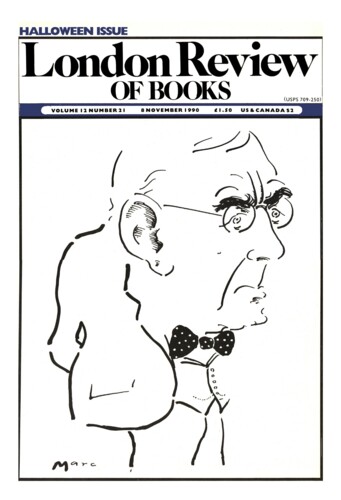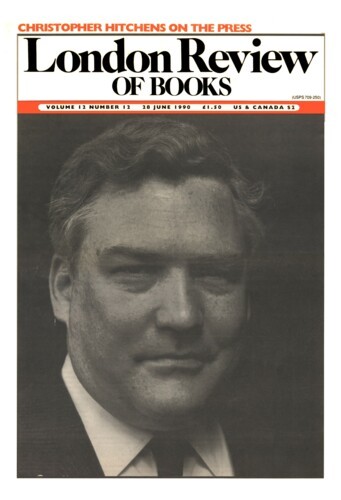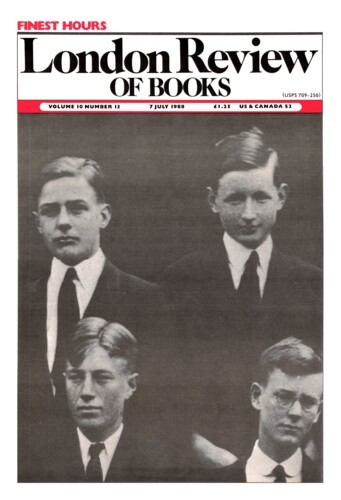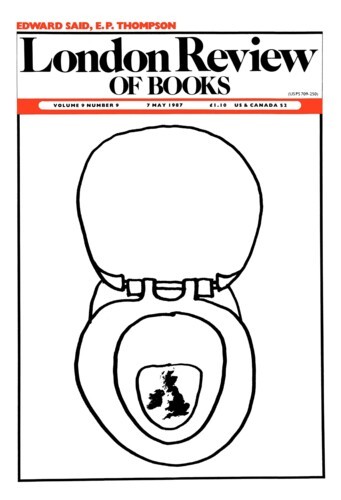Wizard of Ox
Paul Addison, 8 November 1990
Many tributes have been paid to Alan Taylor, including some by old and close friends who knew him very much better than I did. My excuse for adding one more piece is that I would like to explain something of what he meant to younger historians who came within his orbit. Perhaps I shall end up speaking only for myself, but at any rate I can speak from experience as one of his pupils.




